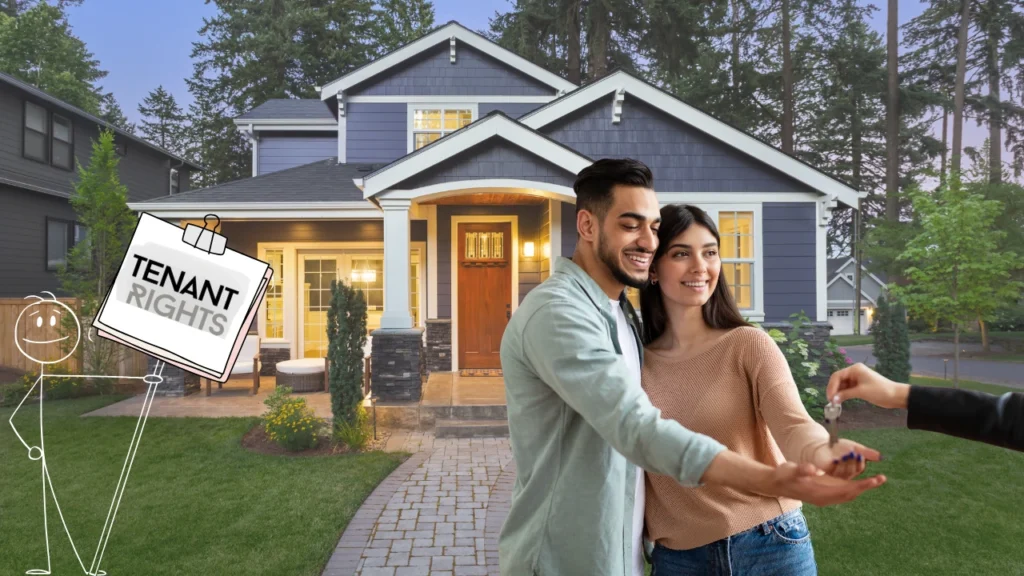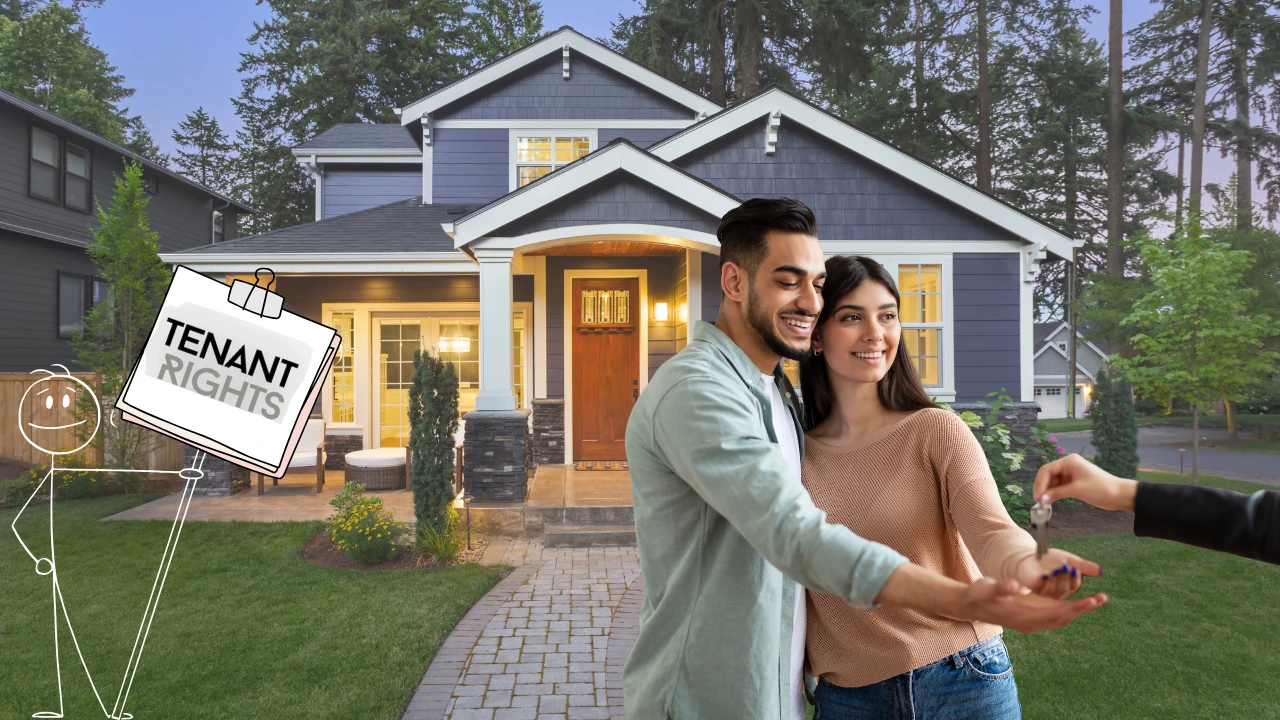Tenant Rights 101.Finding a place is not just about having a roof over your head but it is also about safety, stability, and peace of mind. But renting can also bring stress, especially when it comes to repairs, security deposits, and the threat of eviction..
In California, the renters have strong protections under state law. Whether you are signing your first lease, preparing to move out, or dealing with problems in your apartment, understanding your rights can save you money, protect your home, and give you confidence in tricky situations.
Tenant Rights 101: Repairs, Deposits, and Evictions in California-Overview
| Article on | Tenant Rights 101: Repairs, Deposits, and Evictions in California |
| Repairs | Landlords must fix serious issues as tenants can act if repairs are ignored. |
| Deposits | Must be returned in 21 days, minus allowed deductions. |
| Deposit Limits | 1 month’s rent max as of July 2024. |
| Evictions | Only through court with proper notice and no lockouts allowed. |
| Protections | No revenge or discrimination against any tenant. |
Repairs: Your Right to a Safe and Livable Home
When you rent a home in California, your landlord has a legal duty to make sure it is “habitable.” That means safe, clean, and fit to live in. You should not have to deal with broken heating in the winter, plumbing that does not work, infections, or exposed electrical wires.
It is important to know that landlords are not required to make cosmetic upgrades. Old carpet or an outdated stove may not be ideal, but unless they create health or safety risks, they don’t make your unit uninhabitable. On the other hand, a gas leak, mold caused by plumbing leaks, or broken locks on exterior doors are serious problems that a landlord must fix.

Tenants also have responsibilities. If you or your guests damage the property beyond normal wear and tear, you may be on the hook for repairs. That is why documenting the condition of your rental before you move in is so important. Take photos and keep an inventory checklist to avoid any inconvenience with the landlord.
Security Deposits: Protecting Your Money
Security deposits are one of the biggest sources which creates conflict between tenants and landlords as sometimes the landlord charges extra to the tenants for any broken item or etc. but the tenant does not agree with them. Many renters assume they will never see their deposit again, but the law in California is clear that the deposits belong to the tenant, not the landlord.
Until July 2024, landlords could charge up to two months rent for an unfurnished unit and three months rent for a furnished one. But starting from 1 July, 2024, the rules changed. Now, most landlords can only ask for a deposit equal to one month’s rent. There is one exception which is small landlords who own no more than two properties with up to four units total can still collect up to two months’ rent.
Evictions: When Can a Landlord Make You Leave?
One of the scariest words for renters is “eviction.” The good news is that in California, landlords can’t just kick you out without any valid reason. Evictions must follow strict procedures, and tenants have the rights of every step of the way.
A landlord can evict a tenant for a few main reasons such as if he/she is not paying the rent, violating the lease, or staying after the lease has ended without permission. They have to give you proper notice, file a court case and win before law enforcement can remove you.
If you are behind on rent, you will usually receive a three-day notice to pay or quit. If you have broken another term of your lease, like having an unauthorized pet, the landlord may also give you a three-day notice to fix the issue or move out.
Why These Rights Matter
Repairs, deposits, and evictions cover some of the most common and stressful conflicts between the landlords and tenants. Knowing your rights is not just about avoiding unfair charges or fighting off eviction. It is about balance. Landlords provide housing, but tenants provide the income that keeps the property running. The law tries to keep that relationship fair so both sides can live up to their responsibilities.
For tenants, the best protection is preparation. Always read your lease carefully, keep records of your payments and communications, and document the condition of your home. If problems arise, speak up early and in writing.
| Home Page | https://sbbarristers.com/ |
FAQs for Tenant Rights 101: Repairs, Deposits, and Evictions in California
Ques.1. Can my landlord keep my deposit for normal wear and tear?
No because the Landlords are only allowed to deduct the unpaid rent, cleaning, or damage beyond normal wear.
Ques.2. Can my landlord evict me without any legal notice?
No, they are required to give a proper written notice, file a court case then only they can evict you.
